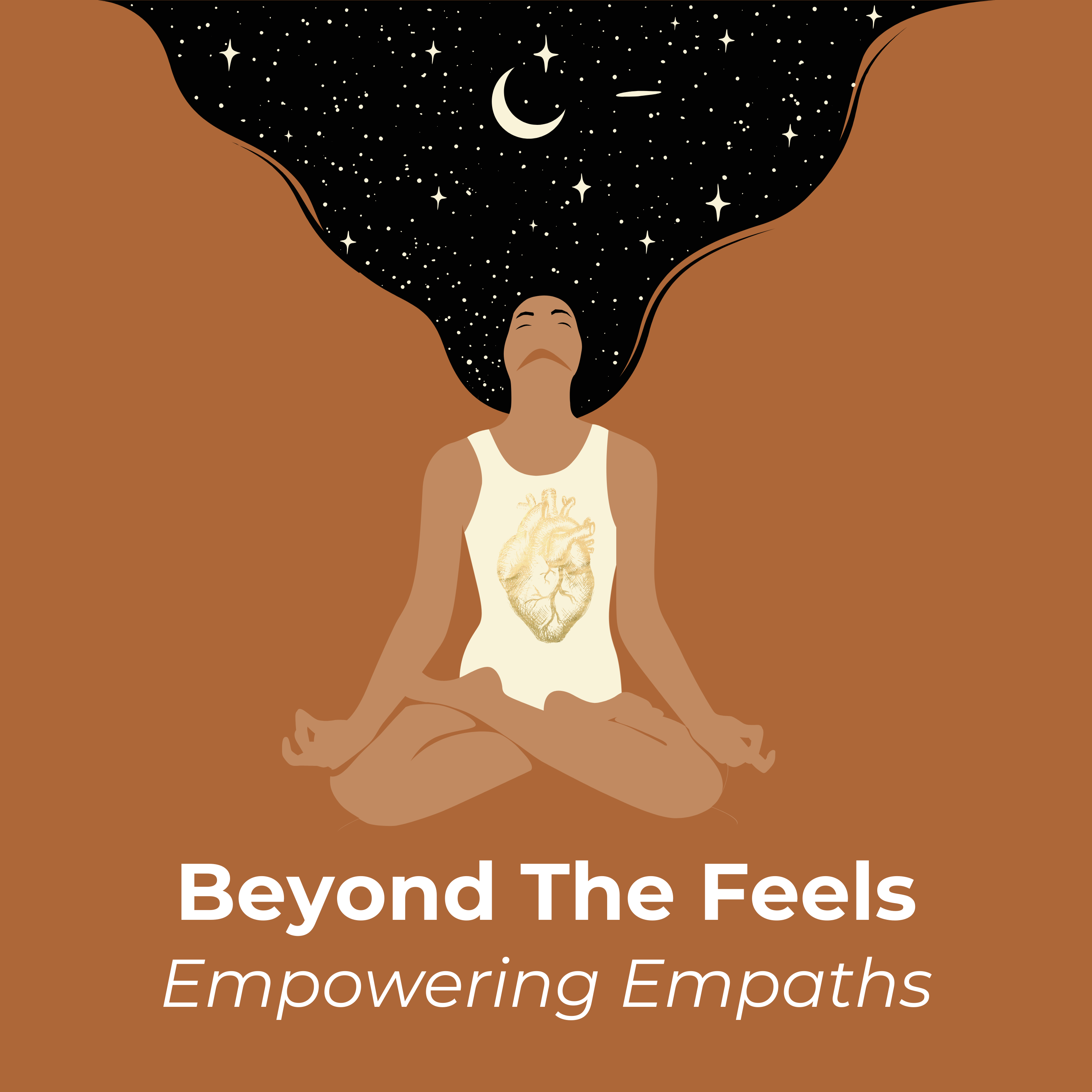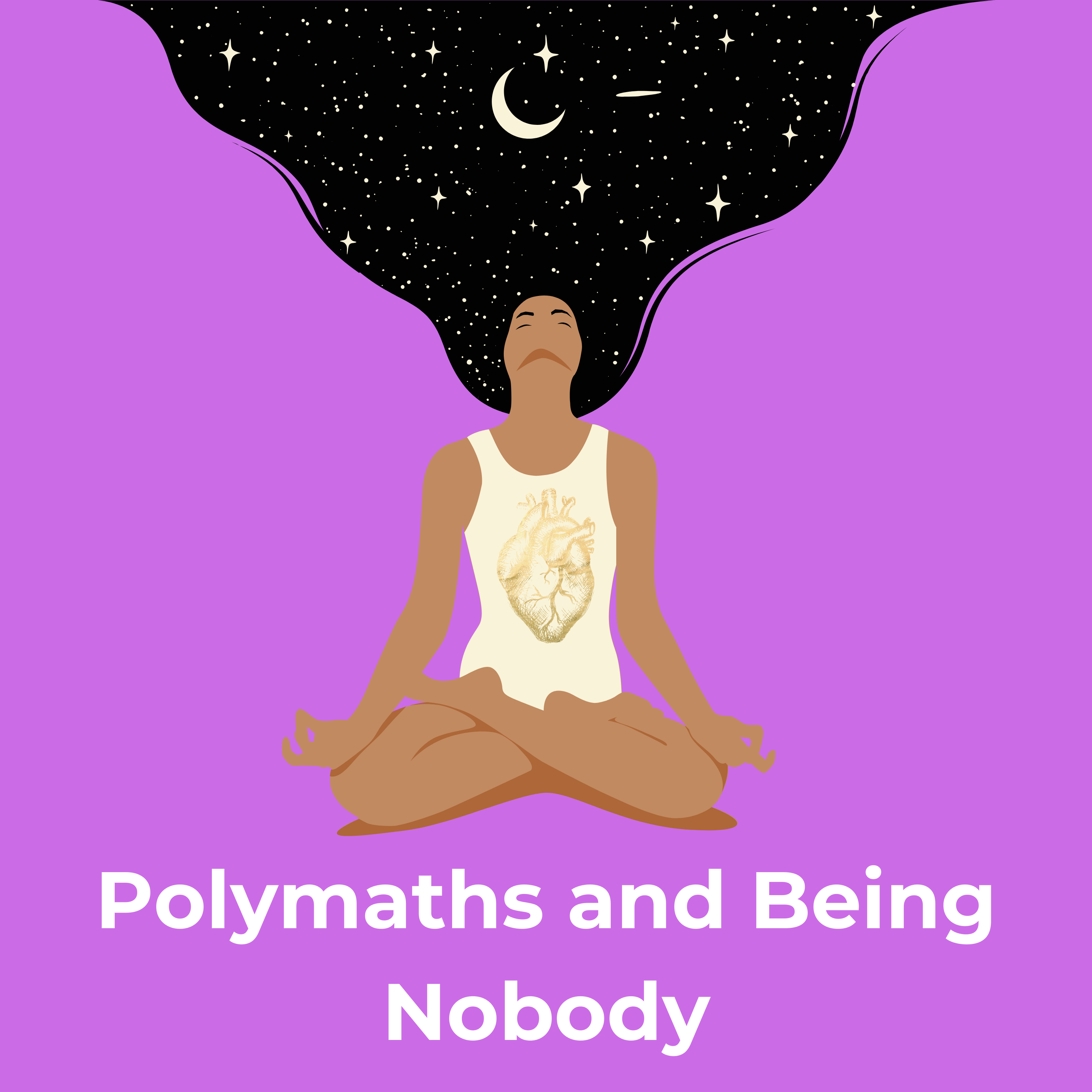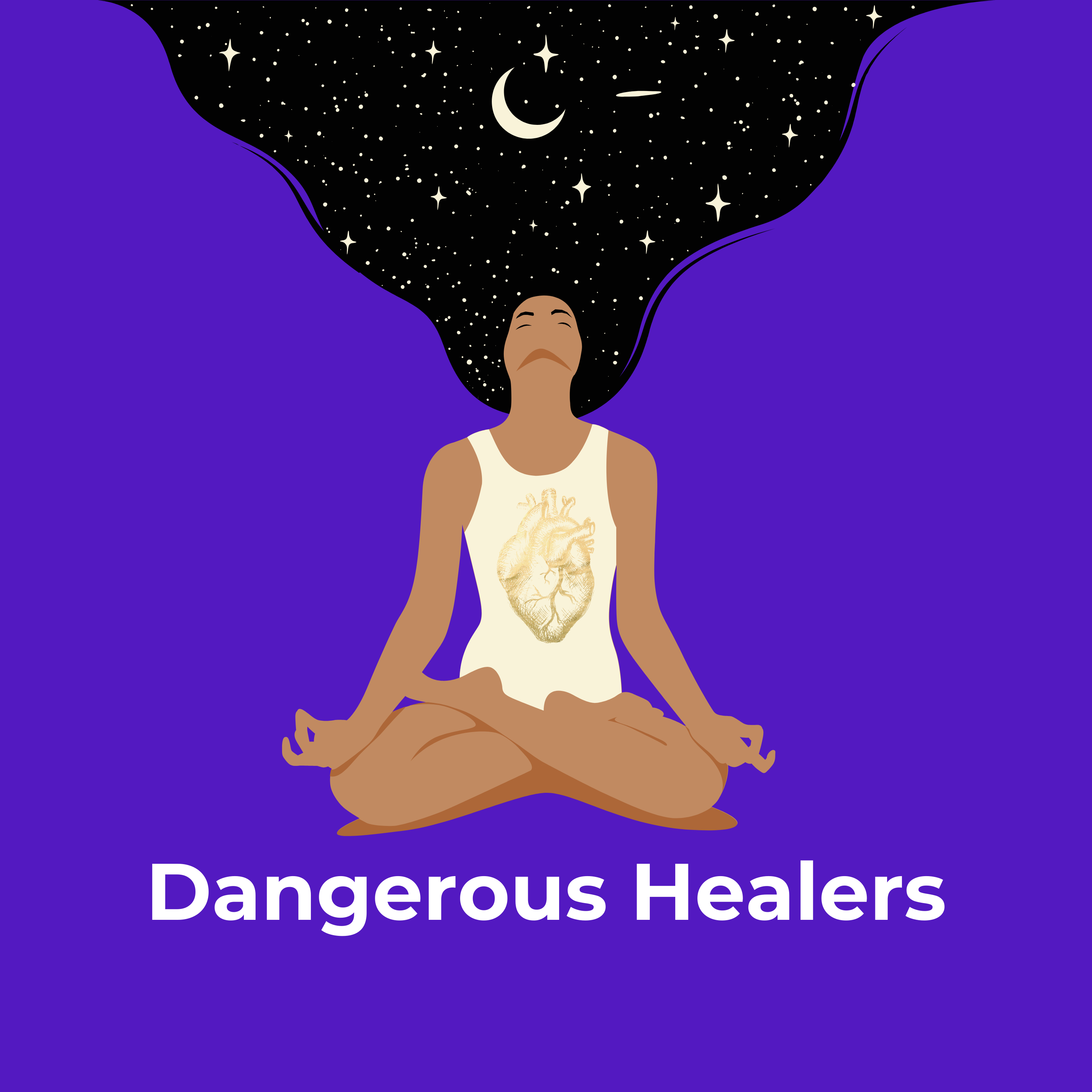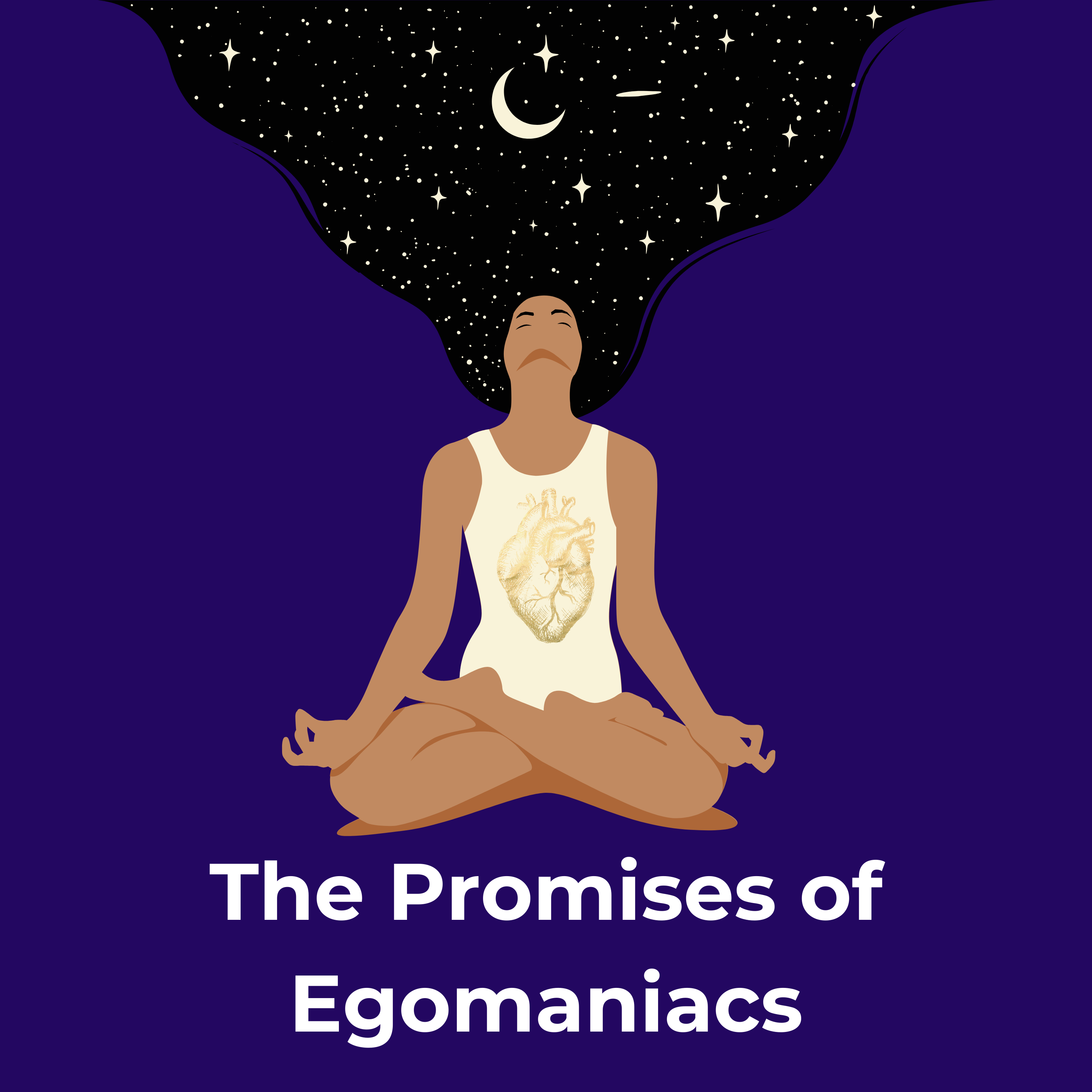Episode Transcript
[00:00:00] Speaker A: The world of healing can be treacherous, but suddenly spiritual aims to provide real, honest, practical, spiritual knowledge and wisdom for the true seekers among us.
The goal is to ignite the divine human within each listener, raising the collective consciousness for our planet. We will challenge your preconceptions, push your buttons and encourage deep reflection. We're not here to adhere to the status quo of what the new age spiritual market wants you to buy into and believe. Consider this your antidote to the woo woo and a place of woo. You.
[00:00:54] Speaker B: One thing about being an empath that I find really important is to understand how to energetically protect yourself.
Now, you can debate whether it's called psychic protection, whether it's called spiritual protection, whether it's called, you know, energetic protection. You can use any kind of language around it, but it's protecting yourself, not just physically, but really protecting your energetic space. So each of our. So our hearts have an electronic pulse. We're electronic beings. We have frequencies that we work with. So our hearts have a radius of 12ft. That's the electronic pulse that emits out of our hearts. Our brains have a smaller energetic field, which some people say it's 8ft, some people say it's 4ft. So it varies from who you talk to. But 12ft, I know, is for the heart, because the heart is such a powerful electric current that is being emitted from your heart. And that's why pacemakers work, because, again, our hearts are electronic and they have that frequency field. So to protect your frequency, what I like to use is crystals. Before you all go rolling your eyes about crystals, there is science around crystals. So crystals have something called a dominant oscillatory rate, which is the way in which the electrons and protons are moving within the crystal. And so each of them has their own frequency and own vibration, just like our hearts do, that rate. So the rate at which those things move within the crystal, the structure of the crystal, is what their frequency is. So some frequencies are better for protection, some are better for manifestation, some are better for love. It really all depends on the crystal. So there are many, many crystals in the world. But for this particular exercise, we're going to use crystals that are darker in shade. So hematite, black kyanite, you can use black obsidian. We want something darker. And that has a dominant oscillatory rate that is attuned towards protection.
And what you can do is you can have these crystals on your person. Some people, most of my friends who are women, put these crystals in their bras. I am not telling you it's very uncomfortable to be putting crystals in your bras. If you can, go ahead. But then if you move, sometimes the crystals will just randomly fall out of your clothes, so you may not want to do that. A bracelet will totally suffice. I wear a black hematite bracelet, so you can also put them in your pocket.
I have a green jade in my wallet. That's for abundance and prosperity. But again, darker crystals help. You could also put darker crystals in your office space, or you could use a himalayan salt lamp because there's a lot of positive ions in office spaces, not negative ions. We want the negative ions in this perspective. So the ocean has lots of negative ions, and office spaces with fluorescent lighting have a lot of positive ions. So putting himalayan salt lamps in your office space, putting black hematite in your office space or on your person is really good, and it helps to protect you against other people's frequencies or, you know, just energies that are floating around in your office, in your home space, wherever you are, and especially if you're wearing a bracelet or a necklace on your person, is good as a way to protect yourself. You can also program crystals.
The one that is easiest to program is a clear quartz.
You could take a clear quartz. There's a whole meditation. I'm not going to go into it in this episode, but I'm sure if people are interested, please email us. More than happy to go through that meditation to program the crystal. But you could also program crystals again, you're. You're entraining your heart frequency to the frequency of a certain crystal. You're matching it. So if it's protection that you really need in your life, training your heart and all the electronics in your body to that dominant oscillatory rate of that crystal for protection, there's also a really great visualization you could do. It's very simple. So the rose, a rose, like the flower, the rose is the highest frequency vibrational flower on planet Earth.
So whenever you're in a difficult conversation with somebody and you don't want to absorb what they're saying to you, just visualize. You can, you don't even have to close your eyes, just visualize rows that's opening towards that person. So rose that's blooming and opening towards that person and just visualize their words being caught by this rose and not coming towards you, but just being absorbed by this rose. And once you close that conversation with the person, you can just imagine the rose being dissolved and returning back to the planet.
[00:06:29] Speaker C: That sounds amazing. As far as helping people, I know, for me, a lot of people talk about, quote unquote energy vampires, and I know there's people that I have been around, and then I walk out of the room and I feel drained, and I don't know why.
And I know a lot of people listening might not necessarily be comfortable with the crystals or the gems for now, but two things.
Any suggestions? Because I know I try and meditate as much as I can and try to have things come through me. And that's one thing on my journey that I found is like attracts like. And then when you give it more, it kind of multiplies. And I know that's something I've found that I can mitigate, where if I. If I go into a room and I know a person's going to be there, and I feel that negative energy, what I used to do was try and push that negative energy back with my kind of negative energy. But what I found is they go together, they add up, and then they multiply. And what I found that works for me now is when that negative energy I feel coming from somebody, I let it go right through me. So I don't deny it being, like, sort of attacking me, but I let it go through.
And I find that helps a lot. But for people who aren't comfortable with the gem stuff initially, do you have any suggestions for them to maybe do the same thing? And then if you can talk about maybe a suggestion for doing this virtually, because I know we're always doing meetings online as well now.
[00:08:21] Speaker B: Yes, some people are not going to be comfortable with crystals. For sure. It took, I think it took you a minute, Sean, to be comfortable with crystals.
But what I would suggest also is visualizing a mirror in front of you. So when someone does come at you with aggressive energy or energy that you find to be overwhelming, I suggest virtually in your mind's eye, placing a mirror between you and them, and the mirror will just bounce back what they are sending to you. Also, I like when someone does send something to me, I always repeat the mantra of return to sender with no harm, with unconditional love.
So you're returning the energy to sender with no harm. Cause we don't want to do harm with unconditional love. And that's the mantra that I say.
[00:09:19] Speaker C: You know I have that Elvis song in my head now, right?
[00:09:23] Speaker B: What song? What Elvis song?
[00:09:24] Speaker C: Return to cinder.
[00:09:25] Speaker B: Oh, there you go. You can sing the Elvis song return to sender song in your mind.
You could do that. But the simple mantra like return to sender, no harm done. The no harm done is very important.
We don't. We're not wishing harm or ill will on anyone, because the laws of the universe are. Everything you send comes back to you threefold. That's just. That's not a rule I made up.
So sending back what that person has sent you with no harm and unconditional love, because at the end of the day, that person is hurting. That's why they're a vampire, because they don't feel that they can access their own personal power, and they feel that they need to siphon power off of others. And so that is why they've become a vampire, either knowingly or unknowingly. Some people know that that's what they do. And there are certain medicine people who actively seek out to skim energy from others. That's how they work.
Yes, that's how they work.
There's taitas and maestros that call those individuals vampiros, so vampires, so they even know about it. They're very clear that they know that that exists.
So just being very careful about how you work with those people and interact with those people. And sometimes if you have that lower frequency, as you said, the lower your frequency is, the more likely it is that you'll attract. You'll attract those types of people.
[00:11:01] Speaker C: And what are some things I can do in the virtual environment to maybe.
[00:11:05] Speaker B: Protect myself, I think going online with intentions. So whenever you have a meeting that you're going to be entering in through Zoom, really setting the context and the intention of the meeting internally before you even start or when you're going into any kind of social media environment, whether it be an Instagram or TikTok or what have you, before you actually enter that space, before you click on the app on your phone, to really guard yourself and say, I'm only allowing the highest frequency of unconditional love and light to enter the space, I fully know that I'm entering a portal that is a virtual space, and I'm only a match to things that are of my greatest and highest good.
So virtually, before you tap on the Instagram app or before you get on that Zoom call, just set the intention in your mind and be very mindful that you are entering a portal that's going to be. It's virtual, but you're still contacting energies that are not of your own.
A lot of us are parentified children, and that's a psychological therapy term. Parentified children typically are. They can be children of immigrants. So I'm a child of two immigrant parents. They came to this country a year before I was born. They did not speak English.
They did not understand the intricacies of american culture or, you know, just how things worked in America as I was growing up. I was the doctor and the lawyer, the translator. I wrote checks, I negotiated with phone companies. I did a lot of things that a ten year old typically should not be doing. And I think this is a common experience for kids whose parents came here from another country. And what that sets up in you is really being the parent of your parents and being overly hyper responsible. And of course, there's other people who totally rebel against that and leave home and don't, don't even get into that game. But I was not one of those people. I got into the game of being the most responsible person ever. And almost to the point where even things that my parents could do, I would just end up doing them because I was so parentified. And this sets us up really poorly to go into corporate environments, because then you recreate your family system within a corporate environment, and you start to be hyper vigilant and hyper responsive to people in your environment, whether it be a boss, coworkers. And you start doing other people's work, and you become completely exhausted and resentful. Eventually you become resentful. And that's also what happens in family systems. That child who's been parentified so much has mortgaged their future in many situations, whether it be their career or being in partnership, because they've been so wrapped up in what is actually a very toxic family system, and they become very resentful. Now, this is not, I'm not, I'm generalizing. This has not happened to every child who is the product of immigrant parents. But it's a very common thing. And I could speak to it in greek culture because that's the culture I grew up in. But it's very common for greek women especially, to become hyper achievers and hyper achievers who take care of their parents, their children, everybody else, the community. And it becomes just exhausting. And that's when your energetic, you know, your stores become very depleted, and then that's when you're weak. And then that's when you more than likely can become compromised energetically by people around you.
[00:15:22] Speaker C: I gotta tell you, when you talked about us recreating the family life at work, that really stood out for me. And reflecting back upon that, you can see how initially, here's the family situation, whatever it is. You know, I would go to work, but then I create a new one that maybe I was more comfortable with. And then when I came home, I would try to do the same. This is all subconsciously, upon reflection, and there was always be tension there. As far as well, am I at home? At home, or am I at home at work?
[00:16:03] Speaker B: Mm hmm.
[00:16:04] Speaker C: Yeah, that was definitely a revelation as far as that goes. And it's funny now that I am actually working from home, and a lot of people listening to this may be doing the same thing.
I'm a big advocate, and now I know why of when you are working from home, I do the same thing. I still get up, I put on different clothes, I leave, and then I go to my office, even though it's in the same building, just mentally to be there and separate the two.
[00:16:44] Speaker B: Also, for the people who do work at home, if you're ever in a situation where you have an interaction with a boss or a supervisor, and then you get off that phone call or that Zoom and say, are he or she mad at me? That's a very parental thing to ask yourself if your boss is mad at you, because that's something that as children, we ask. I wonder if mom or dad are mad at me. And it's more so the tone of how you say it.
Rather you're treating them like parents. Because if I wonder if my boss is angry or upset with something that I did specifically, maybe I made a mistake or error at work, or maybe I didn't meet a deadline or an expectation, that's different than saying, I wonder if my boss is mad at me. She or he sounded weird or off. That's a sign of hyper vigilance as a parentified child, when you have a reaction where you're constantly thinking that your boss is mad at you, mad is what you think your mom is because you broke a window in the house, because you threw a ball, you know, from the outside in, like she would get mad.
So the language we use, too, is an indicator of how enmeshed we are within our family system and how much we've transferred that over to our work environment.
[00:18:14] Speaker C: So now that the people are listening, kind of have this ability to maybe notice their superior at work, maybe trying to parentify them or subconsciously doing it and not knowing it.
If they recognize it now, what can they maybe do to mitigate that for themselves? To maybe protect themselves or not in a negative way, but on the down low, maybe retrain their boss to not do it. How can they? What can they do?
[00:18:55] Speaker B: It's hard to unbake a cake, typically, but there will be resistance because it's going to go back to boundaries, because you've instituted either no boundaries or very loose boundaries. This is why your superior has been allowed to treat you this way, because you've accepted it and you've set a precedent. So dialing back boundaries is a process because then if you say no to a project at the 11th hour, typically you would say yes to it because you want to be the good boy or girl, quote, unquote.
Then by saying no to a project, you will get resistance and you'll need to explain yourself.
[00:19:43] Speaker C: Yeah. And this comes with previous episodes when talking about increasing your self awareness. And if you're just coming to this one for the first time, you can go back and listen to the one label boundaries. We talked in depth about that. And thank you for listening. We'll see you next time.
[00:20:03] Speaker B: See you next time.



